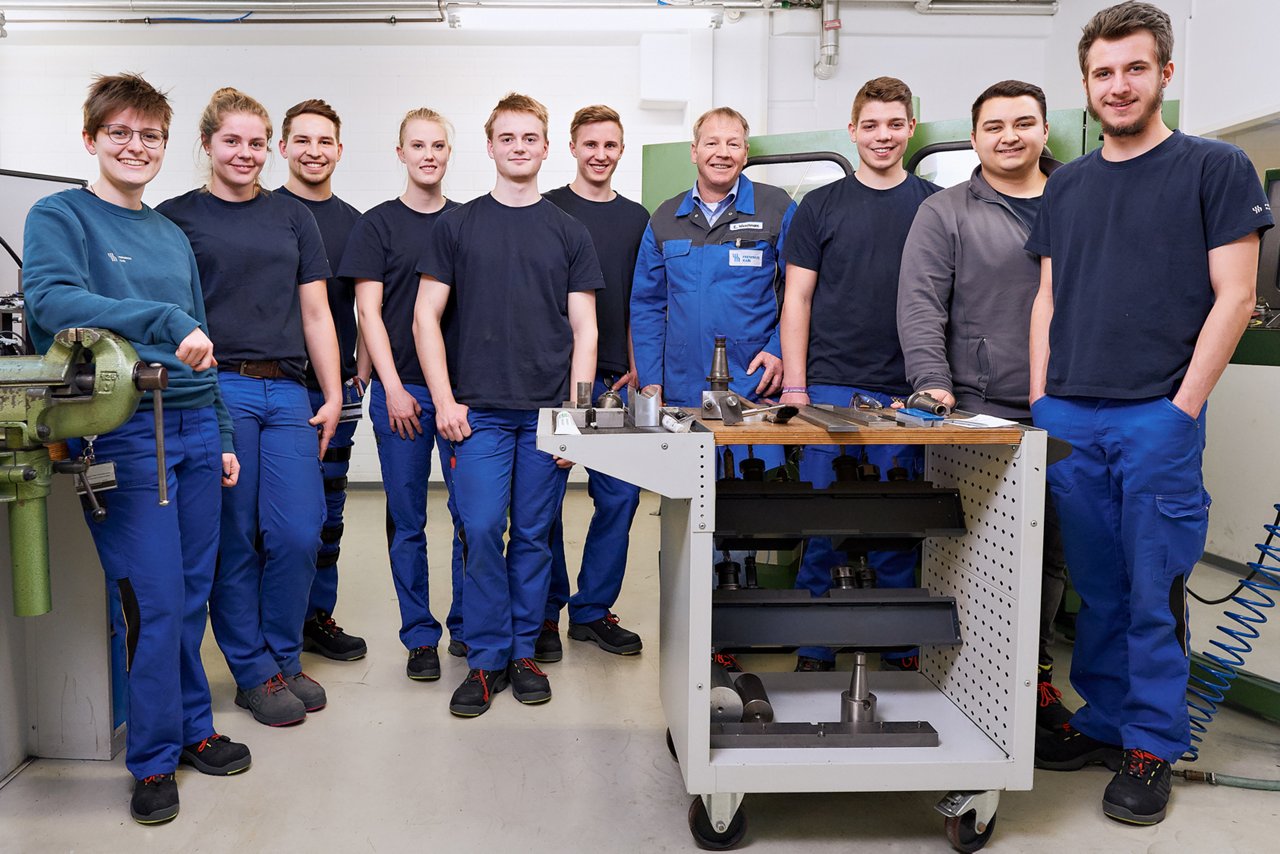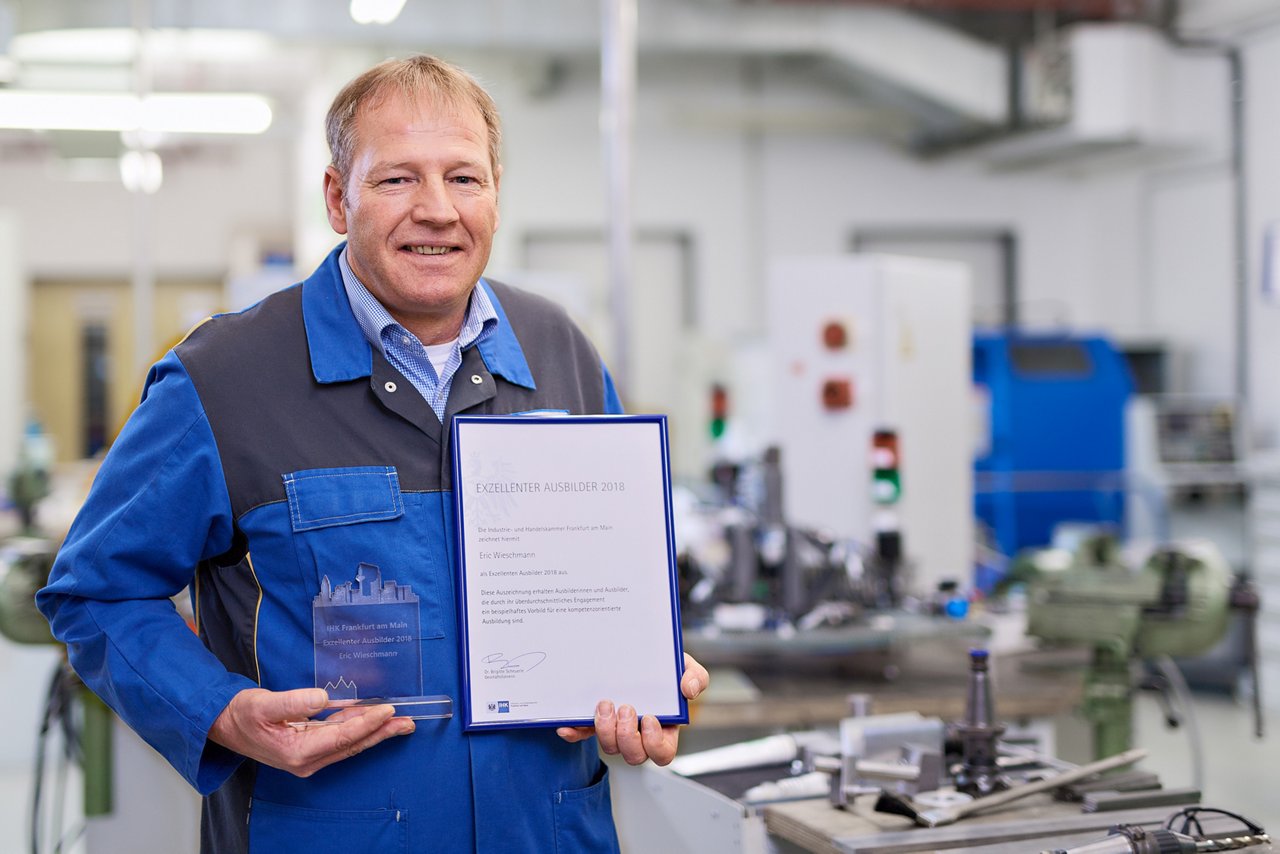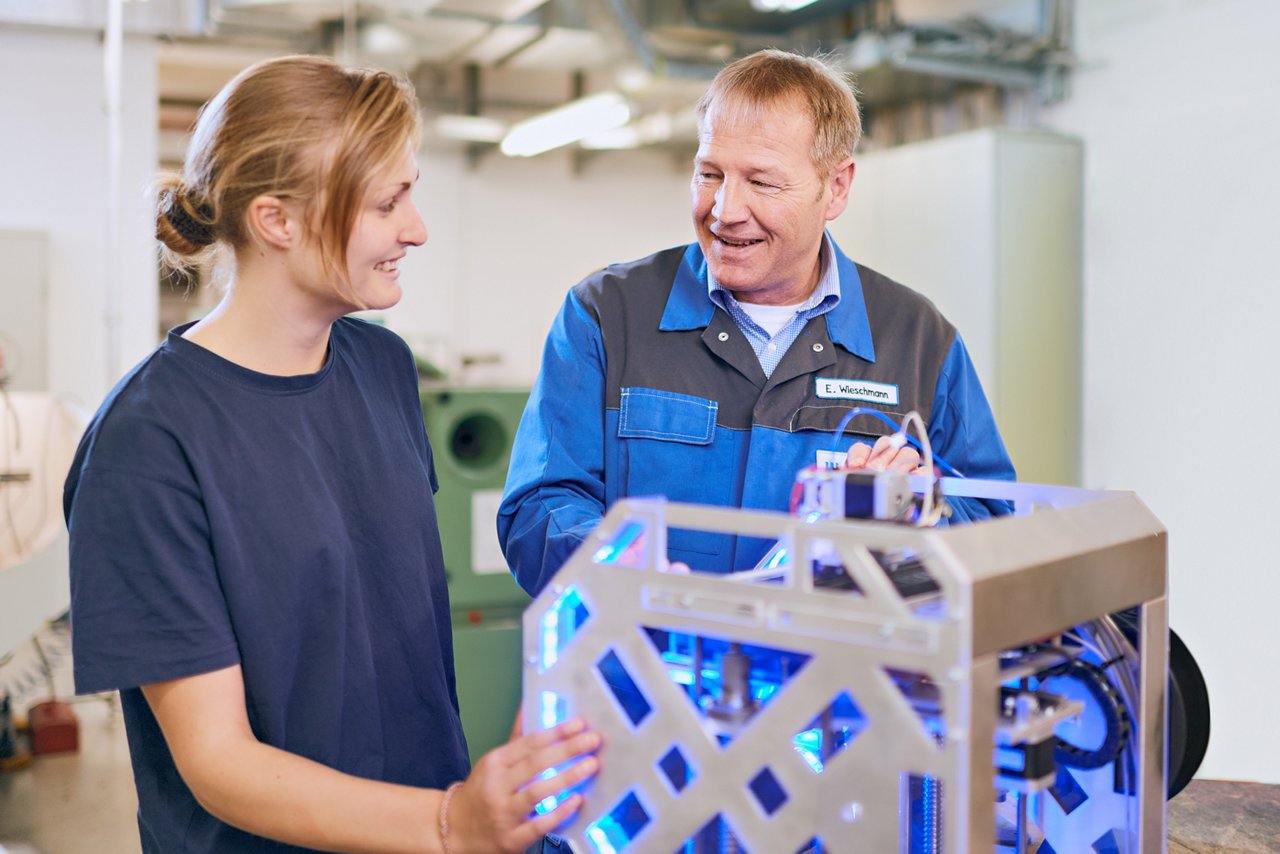Two Decades as Exceptional Instructor
How Eric Wieschmann creates a reliable pool of talented engineers for Fresenius Kabi
Eric teaches industrial mechanics and mechatronics apprentices in the workshop at the Fresenius Kabi plant in Friedberg, Germany. His day usually begins at 7:30 a.m. with a meeting where he divides up the day’s tasks among them and discusses their goals. He also answers questions and provides support. What follows depends on the day’s tasks, illustrating the diversity and challenges of his job.
The instructor is nearing his 20th anniversary with Fresenius Kabi – he began training apprentices in 1999. When he started, he was assigned just three apprentices. Since he was the first and only instructor at the Friedberg plant, he had to start from scratch. “It’s very rewarding to see the top-notch modern tools, equipment and work environment now,” he says. Growing alongside the company over near-20 years at Fresenius Kabi was important and rewarding for him: "My creativity and experience have always been helpful in solving technical problems, and business growth has allowed for evermore diverse and complex work situations."
 Eric’s work is a great example of Fresenius Kabi’s strategy to recruit and develop promising young employees.
Eric’s work is a great example of Fresenius Kabi’s strategy to recruit and develop promising young employees.
He became an instructor because he wanted to share his passion for engineering and mechanic processes with the next generations. “I feel like I have a gift when it comes to instructing young people and helping them on their way to becoming both professionals and adults.” Enjoying working with people and solving problems are prerequisites for his position – and more than “just” a job for Eric. On top of his work for Fresenius Kabi, he also volunteers as chairman of the IHK Board of Examiners and on the PAL committee of Stuttgart (Department for Examination Tasks and Teaching Development).
This passion is undoubtedly what brought him the honor of the “excellent instructor” award from the IHK Frankfurt. The award recognizes extraordinary instructors who develop effective training concepts, are focused on creating a positive teambuilding atmosphere, and whose students perform strongly in examinations. Eric was surprised by the nomination: “I would have never initiated such a process, but nevertheless it feels extremely rewarding to be recognized for one’s work and I appreciate it very much. My apprentices from that year created a video for the jury in which they promoted my work – a gesture that I still find moving and am proud of.”
His job is in constant flux, the result of the constant flow of new technologies and technical advancements, as well as generational changes. “I understand my position in part also as someone who has a duty to help young people in their development,” Eric explains. “Nevertheless, I feel like there is a tendency for younger generations to become less self-reliant, and an increasing tendency to simply throw things away and buy something new instead of repairing and improving something yourself. Whether that is actually an objective truth or not – I am aware that every generation probably has made comparable observations regarding their successors,” he says, laughing.
Business success: People are at the heart of Fresenius Kabi
Eric’s work is a great example of Fresenius Kabi’s strategy to recruit and develop promising young employees – a strategy that makes a major contribution to the business success. Apprentices hoping to become employed after their training are more motivated and engaged, and more likely to win the opportunity, than someone who merely wants to pass the time until graduation. This concept of sustainability is a major aspect of what makes Fresenius Kabi a great partner and employer. Eric realizes this every time he goes through the plant in Friedberg: “I meet so many of my former apprentices who now work as permanent employees for Fresenius Kabi. I feel very satisfied and proud. One can absolutely feel the philosophy of “caring for life” when seeing these former students producing life-saving products through the knowledge that we gave them as instructors.”
Eric himself was once an apprentice – at a mid-sized company in Giessen, Germany. At the time, he worked on materials and projects solely for the effect of training his drilling and milling skills as well as his precision. Once finished, the items were simply thrown away. “I changed this attitude with the work of apprentices in my department. Nowadays, everything that is crafted by my trainees is built with the intention to use it.” Great examples of what apprentices can achieve in Fresenius Kabi are the robots with gripper tasks. “We are constantly developing our technical setups and one of the issues we had was that the gripping devices of our robots were sometimes damaging the infusion solution bags,” says Eric. Some of his apprentices then had the task to mill a sensitive and less destructive gripper finger– a huge success. Every employee at the site generally has the freedom to develop creative solutions. Everyone is respected and taken seriously, no matter how long they have been part of the company yet.

